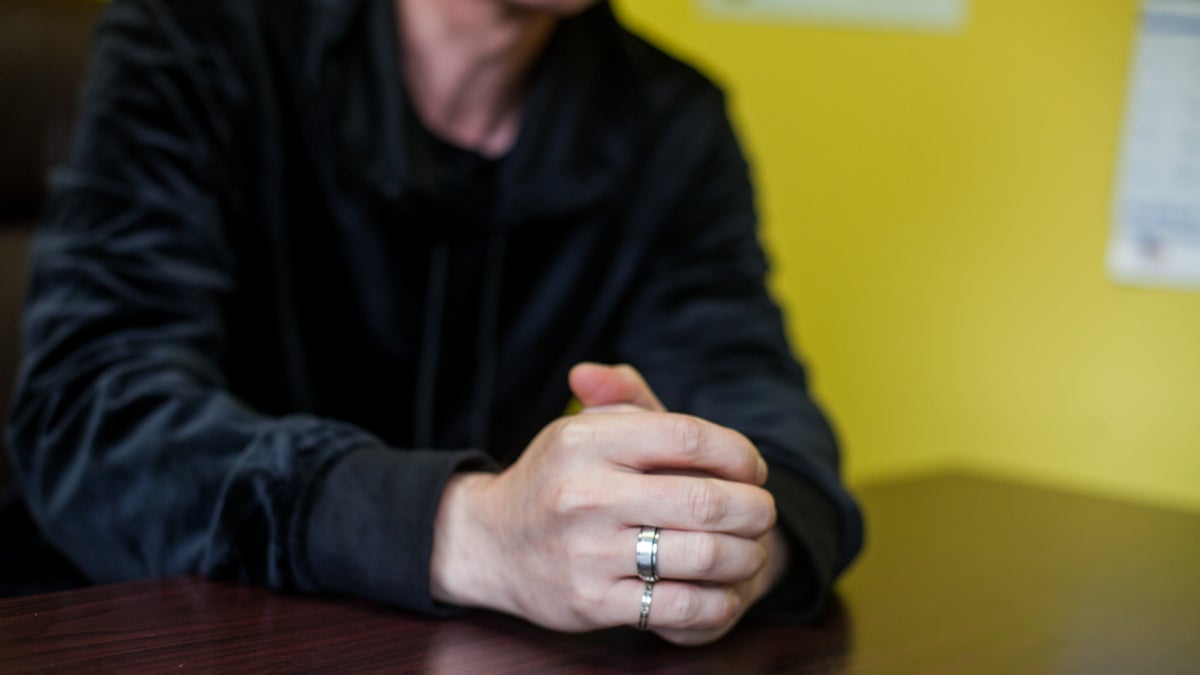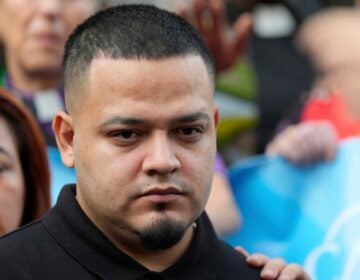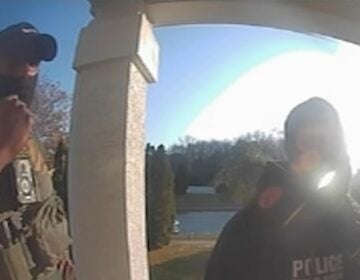Vitaly: Seeking asylum from LGBT persecution in Russia

Vitaly, a gay man originally from Moscow, left Russia in the hopes of marrying his partner if they were granted asylum in the U.S. (Brad Larrison for NewsWorks)
“Life, unauthorized” is a series from WHYY/NewsWorks that looks at the personal immigration stories of individuals who are living in the Philadelphia region without legal status.
—
Vitaly, 40, from Russia
Vitaly is from Moscow and has been in the United States for a year and a half. He and his boyfriend, now fiancé, had a beauty business together for seven years — yet kept their romantic relationship a secret the entire time.
Vitaly was initially targeted in 2013 for speaking out against the Russian-backed invasion of Ukraine at an international symposium on cosmetology in Germany. They were forced to sell their business and file for bankruptcy.
“What happened was a series of very unfortunate events,” he said. “My friends turned their backs to us, and we started facing obstacles in our profession. What finally happened was our business was taken over. And since we’ve been here, the company name was taken from us as well.”
Vitaly came to the United States on a one-year work visa as a journalist, writing for beauty magazines. His partner came as a tourist on a year-long visa. They intended to return home, but President Vladimir Putin’s laws against LGBT people increased violence dramatically.
The couple are now living with friends here. They are connected to Spectrum Human Rights, an advocacy group that specializes in LGBT asylum applications for Eastern Europeans. They are both waiting on their asylum interview, work permit, and driver’s licenses.
In his own words: Being gay in Russia
“The LGBT problems started back in my childhood. I personally suffered back at school. It all lasted ’til the beginning of the ’90s and only after the collapse of the USSR, we felt that some freedom would be possible in the country, and we had hope for the future.
“But as time demonstrated, while the status of the country may change, the habits and mentality of the people change very slowly. With the beginning of Putin’s era, things started getting worse and worse. We started getting official pressure, which was in every field of our lives — our personal lives, in our industry — we felt pressure from any official we faced.
“People like us, they suffer a lot back in Russia. Some try to make peace with the situation. They close themselves inside their houses. They don’t do anything. But the problem is they might not even find work, because being gay may be a reason for you to get fired.”
WHYY is your source for fact-based, in-depth journalism and information. As a nonprofit organization, we rely on financial support from readers like you. Please give today.




